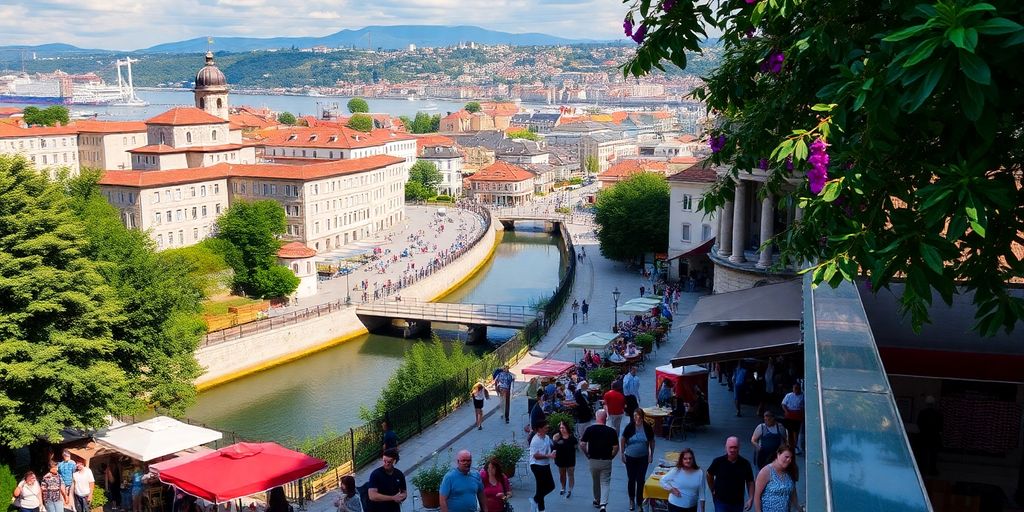The city of Rousse, Bulgaria, is witnessing a remarkable surge in tourism following its recent full integration into the Schengen Area. This development has significantly eased travel for Romanian visitors, transforming Rousse into a bustling destination and providing a much-needed boost to the local economy.
Key Takeaways
- Schengen integration has led to a 25% increase in border traffic from Romania.
- Local businesses are adapting to cater to the influx of Romanian tourists.
- The economic impact is expected to grow as tourism continues to rise.
Increased Border Traffic
Since both Bulgaria and Romania joined the Schengen Area, the Danube Bridge connecting Rousse to Giurgiu has seen a dramatic increase in traffic. In the first quarter of 2025, approximately 160,000 vehicles crossed the border, up from 128,000 during the same period in 2024. This increase is largely attributed to Romanian tourists who are now able to travel without the hassle of border checks.
Travelers like Christian, who frequently visits Rousse from Bucharest, appreciate the convenience. "With Schengen, it’s faster: no more queueing to have our papers checked," he noted, highlighting the ease of access that has made Rousse a popular shopping destination for items like cigarettes and perfumes.
Economic Benefits for Local Businesses
The influx of Romanian tourists has had a positive impact on Rousse’s economy. Local businesses are adapting to meet the needs of their new clientele. For instance:
- Restaurant Menus: Many establishments have begun offering menus in Romanian, with bilingual staff becoming increasingly common.
- Increased Revenue: Restaurants and hotels are reporting higher revenues, especially during weekends when traffic peaks.
- Cultural Adaptation: The city, known for its diverse architecture and cultural sites, is evolving to cater to the tastes and preferences of Romanian visitors.
Todor Ratsov, a local restaurant manager, shared that about 90% of his menu is now in Romanian, reflecting the changing demographics of his clientele.
Pilgrimage and Cultural Tourism
Rousse is not only attracting shoppers but also pilgrims. The Basarbovo Monastery, located just outside the city, has seen a rise in visitors, particularly from Romania. This historic site, carved into a mountain, is a popular destination for those seeking spiritual experiences. Father Aleko, a local priest, has noted a clear increase in visitors, stating, "Once they pass through Rousse, they never fail to come and light a candle and pray to the saint."
Long-Term Economic Impact
Experts predict that the tourism boom in Rousse will have lasting effects on the local economy. Adrian Nikolov, a senior economist, emphasizes that the benefits extend beyond tourism, impacting cross-border trade and logistics as well. Companies that rely on transport across the border are experiencing reduced journey times and lower operational costs, which translates into increased efficiency and profitability.
As Rousse continues to embrace its role as a key player in Bulgaria’s tourism sector, the city is poised for a bright economic future, welcoming more visitors and fostering a vibrant local culture. With the Schengen integration, Rousse is not just a border city; it is becoming a thriving hub of commerce and culture, attracting tourists from across the region.
Sources
- Schengen Integration Fuels Tourism Growth in Bulgaria’s Rousse City, Travel And Tour World.
- Bulgarian border city hails Schengen tourism boom | Nation, Iosco County News Herald.
- Bulgarian border city hails Schengen tourism boom, France 24.
- Bulgarian border city hails Schengen tourism boom | National News, Citizen Tribune.






